Olympic Technology Watch: How AI PCs Become the Digital Guardians of Contemporary Sporting Spirit?
![]() 08/13 2024
08/13 2024
![]() 502
502
Article | Ring Says
Digital twins assist in gym construction, Ultra HD live streaming... This Olympic Games is filled with a strong sense of technology, where almost all cutting-edge technologies can be found in Olympic event operations.
In the era of AI, how AI can help ensure the smooth hosting of the Olympics and enable athletes to perform better is also worthy of industry attention. After all, sports have always been one of the most important scenarios for the application of AI technologies and products, best showcasing their implementation capabilities and value.
A notable example is that during the preparation and hosting of this Olympic Games, Lenovo's AI PC-related products officially collaborated with China's National Rock Climbing Team, National Sailing Team, and National Shooting Team, directly participating in training sessions and essentially becoming a "digital member" of the coaching staff.
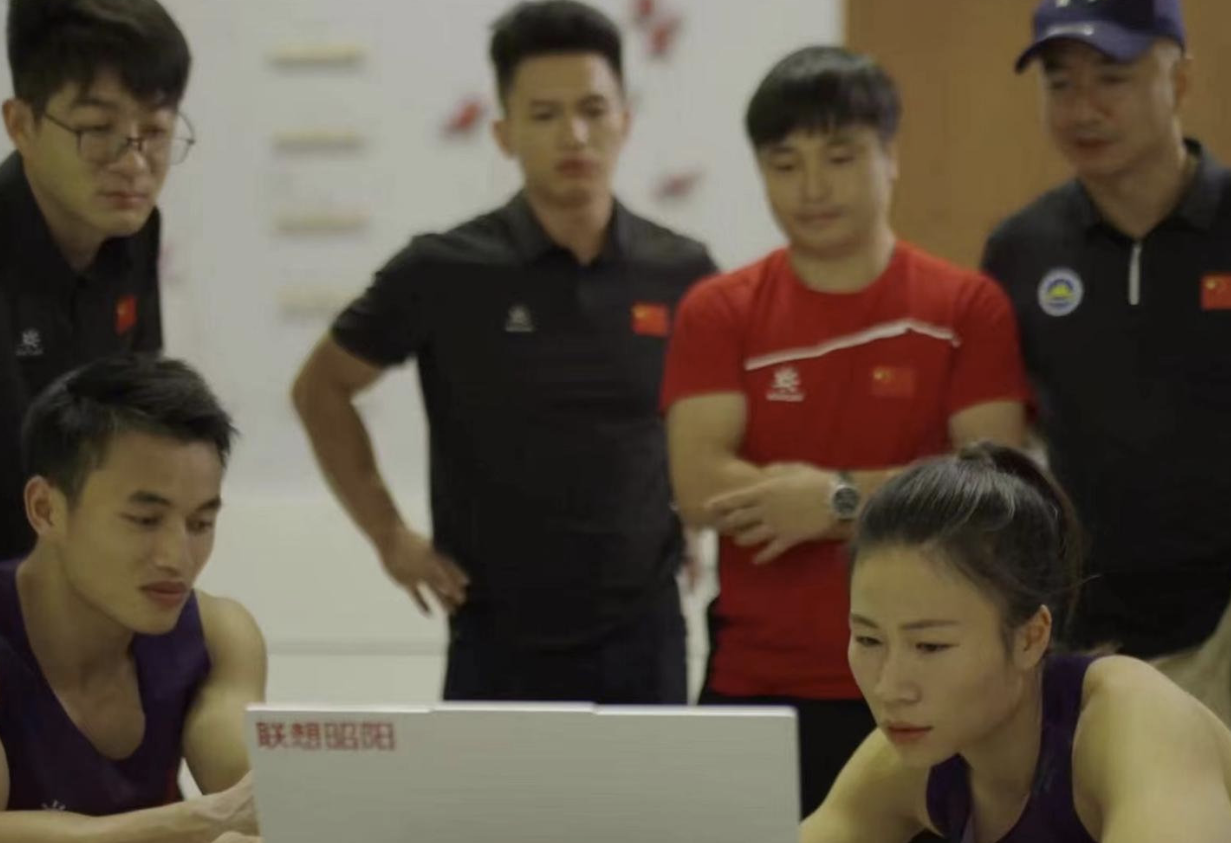
Looking back 40 years to 1984, Xu Haifeng, a Chinese shooter, won China's first Olympic gold medal, and it was around that time that Lenovo was born. Now, at the age of 40, Lenovo is helping China achieve better results in the Olympics, which is undeniably a cycle of destiny.
From the perspective of the history of the Olympics and even human sports development, behind Lenovo AI PCs supporting the Chinese national teams, there is already an answer to how technological innovation should appropriately uphold contemporary sporting spirit.
AI Evolves 'Technology Empowering Sports'
Undoubtedly, the development of human competitions is an epic of technological advancement.
In terms of event operations, exemplified by the Olympics, electronic timers were first used in 1912, sports events were first broadcast on television in 1936, computers entered human competitions in 1972, and internet technology was widely applied in 1996, followed by 3G networks, 3D technology, VR technology, and more.
The most cutting-edge technologies of each era can be seen and deeply applied in large-scale sports events. For instance, 3D technology, currently utilized in various arenas, employs the ultra-high-precision Hawk-Eye technology to generate 3D images to assist in officiating tennis, soccer, volleyball, and other sports, reducing misjudgments and becoming a "standard configuration" that is fully applied in this Olympic Games.
In recent years, 5G, XR, the Metaverse, and more have frequently appeared in large-scale multi-sport events such as the Olympics, Winter Olympics, Asian Games, and others. For instance, at the upcoming Paris Olympics, 5G networks combined with Ultra HD broadcasting have been widely adopted, significantly enhancing the viewing experience for off-site spectators, making online and TV viewing more immersive. Behind this lies the evolution of people watching broadcasts from black and white to color, then to HD, Ultra HD, and low latency.
Yet, the most noteworthy aspect is the application of AI in large-scale events.
Entering the era of AI, the convenience brought by AI is infiltrating various scenarios through various products and services, and sports events are no exception. The collaboration between Lenovo AI PCs and various teams is established against this backdrop.
At the previous Winter Olympics, Lenovo provided China's National Short Track Speed Skating/Speed Skating Team with Lenovo's intelligent training solutions, customizing them based on the national team's needs. Apart from fully empowering the IT system, Lenovo also provided self-developed single-lead and three-lead ECG monitors, collaborating with ThinkPlus conferencing tablet products to conduct high-frequency sampling and intelligent analysis of athletes' conditions, achieving the goal of intelligently managing athletes' competitive states.
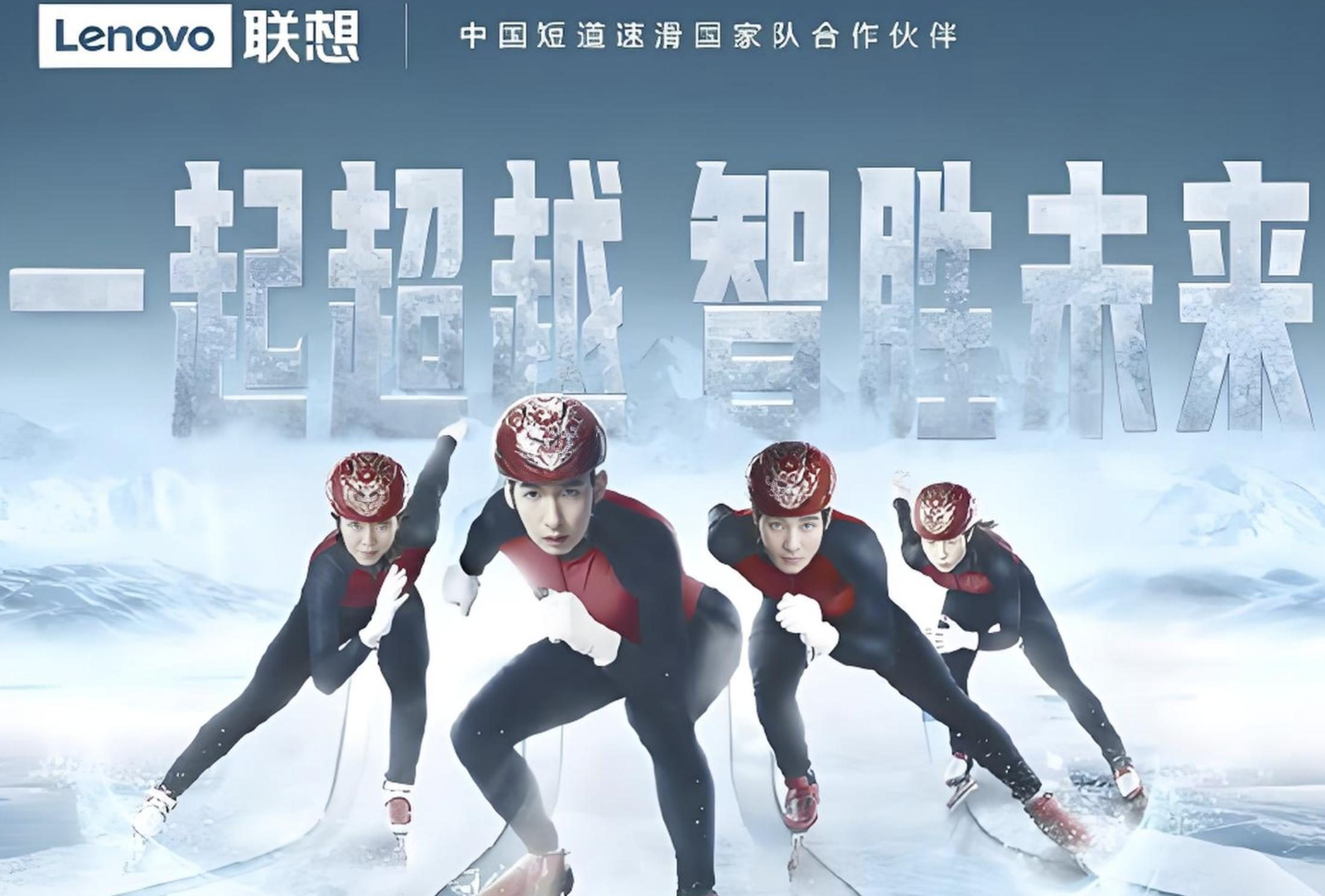
AI intervention enhances the scientific nature of athletes' individual training and strengthens the exploration of athletes' talents. This route of "using technology to help enhance athletes' individual abilities" is also what Lenovo AI PCs are currently undertaking.
Lenovo's collaboration with China's National Rock Climbing Team, National Sailing Team, and National Shooting Team not only supports the normal conduct of daily training through equipment but also highlights the AI attributes inherent in the products, particularly their intelligent capabilities in training data collection and analysis, training plan formulation, and more.
It can be said that these "technology empowerments" boost athletes' abilities and skills, helping them achieve better results, from daily office work to training activities.
The matter of 'Technology Empowering Sports' has undergone new evolution in the AI era.
The 'Olympic Spirit' of an AI PC
The self-challenging spirit of 'Faster, Higher, Stronger' is widely recognized as the Olympic spirit, embodying sporting spirit most acutely.
As evident from these expressions, they all advocate for athletes' personal improvement, continuously challenging their past selves and competitors through diligent and methodical practices, striving for constant 'more.'
The International Olympic Committee has consistently emphasized 'encouraging athletes to use scientific training methods,' which is to say, encouraging the adoption of technological means to tap into athletes' abilities and enhance their skills.
A crucial way to achieve this lies in the effectiveness of the training process, enabling athletes to continuously compare their past performances and identify areas for breakthrough and improvement.
Its essential requirement is data analysis, precisely what AI excels at.
For instance, in rock climbing, the outcome of a competition can hinge on mere seconds. To enhance oneself and aim for 'more,' the primary means involve repeated comparisons and reviews, continually optimizing route selection and climbing movement details.
With the help of Lenovo's Zhaoyang X7 AI business laptop and Zhaoyang K11 business tablet, China's National Rock Climbing Team's speed division can stably and efficiently run a sports analysis system introduced by the team, recording and analyzing athletes' horizontal and vertical speeds, acceleration, and more, and formulating targeted training plans to push athletes to continuously surpass themselves and become 'Faster, Higher, Stronger.'
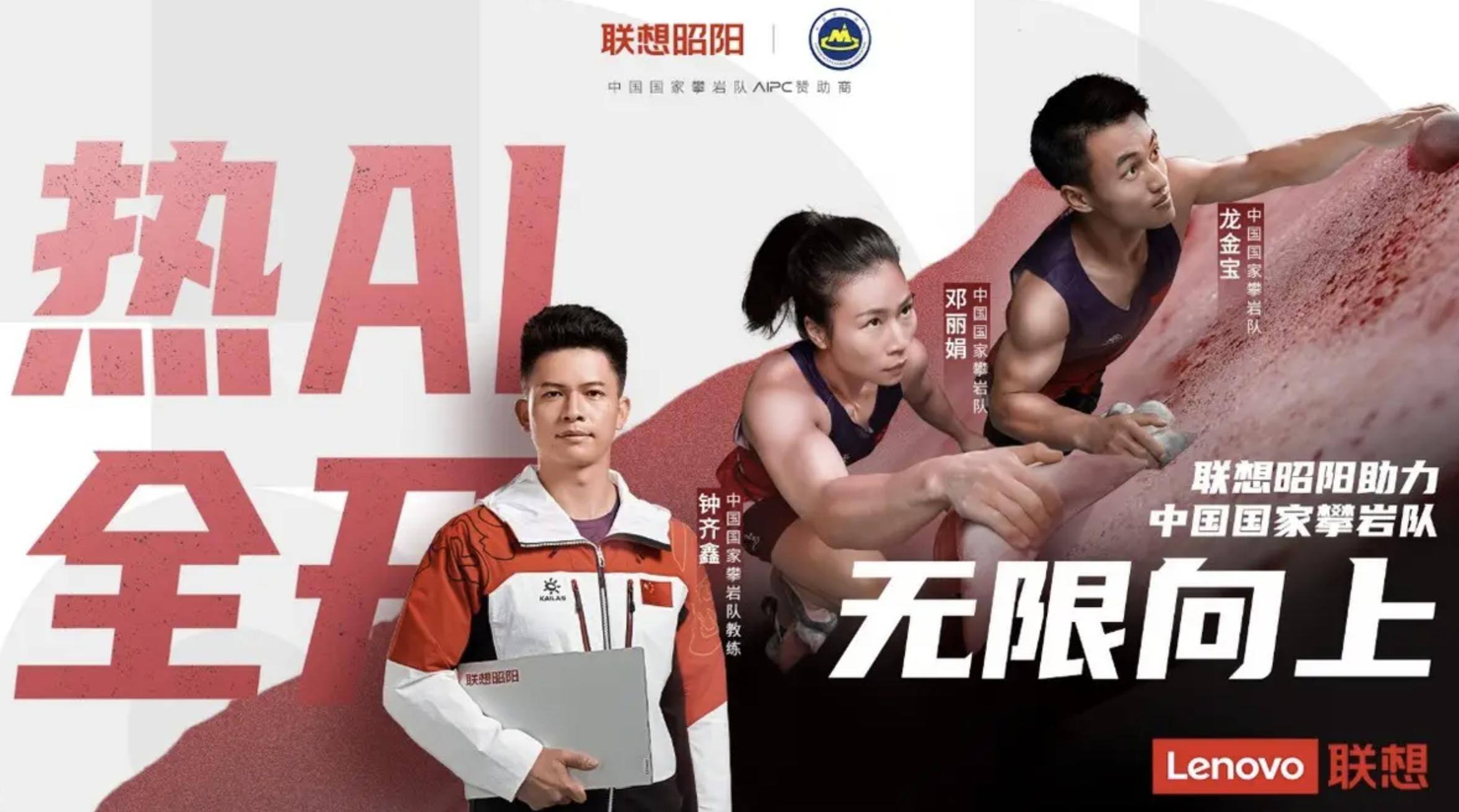
Furthermore, bolstered by Lenovo Zhaoyang's AI computing power, Lenovo's personal AI assistant 'Lenovo Xiaotian' can assist coaches in automatically generating training reports, effectively enhancing work efficiency amidst intense training sessions and strengthening the closed-loop training process.
In collaboration with China's National Sailing Team, the personal AI assistant 'Lenovo Xiaotian' built into the ThinkPad T14p AI Yuanqi edition can also efficiently assist coaches in formulating athletes' customized training plans. Its powerful AI computing output supports analysis of body movements and movement trajectories, helping the team grasp a more comprehensive understanding of training conditions.
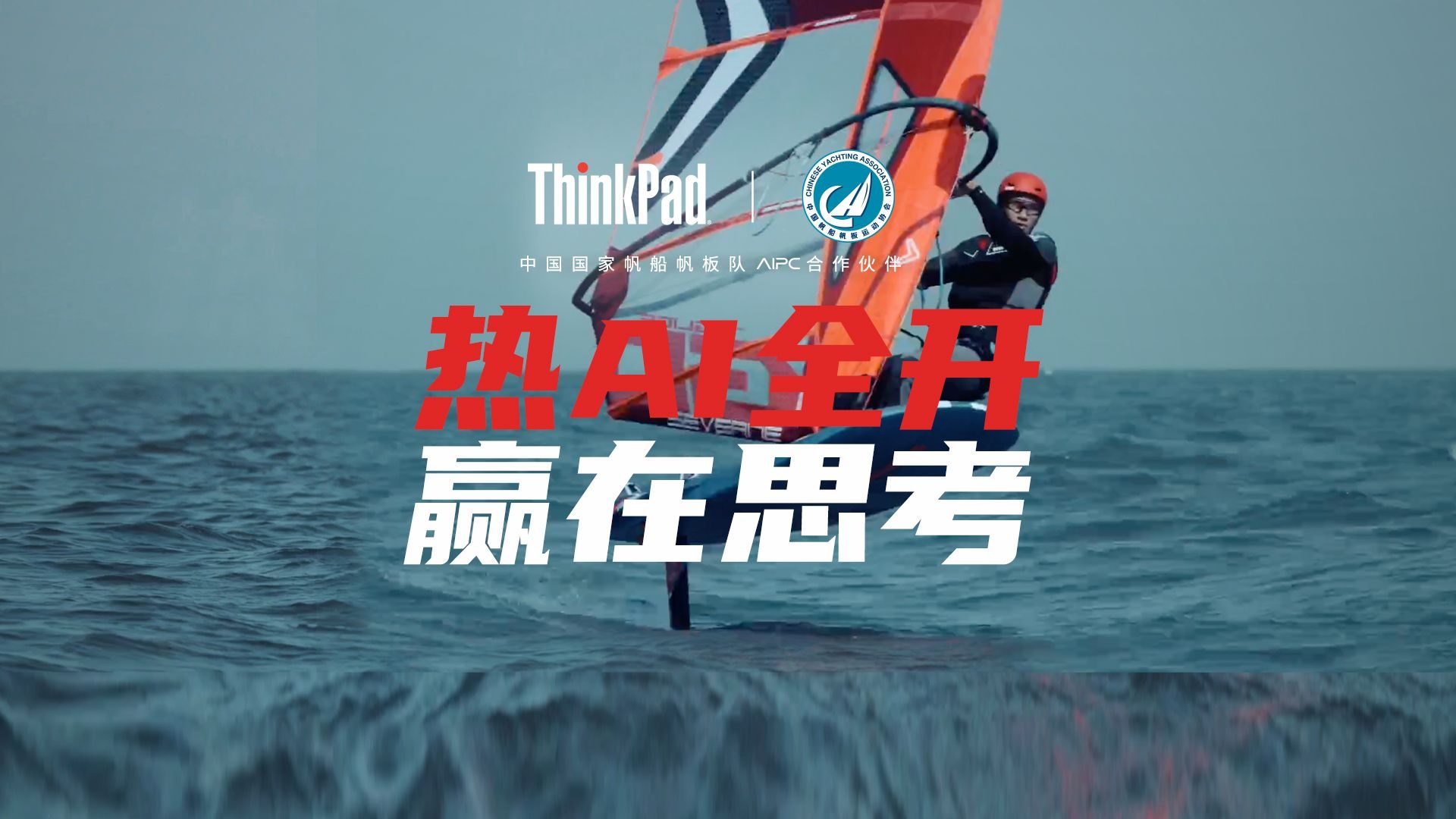
AI empowering sports enables athletes to genuinely discover their suitable training rhythm, utilizing the most appropriate methods to achieve improvement and even assisting coaches and athletes in gaining new insights into the sport from numerous details. The operation of these technologies necessitates robust computing power and exceptional product stability, highlighting the value of Lenovo AI PCs.
To some extent, the addition of such a product is akin to a stable empowerment and companionship from an additional 'digital member' of the coaching staff, enabling athletes to truly become 'Faster, Higher, Stronger.'
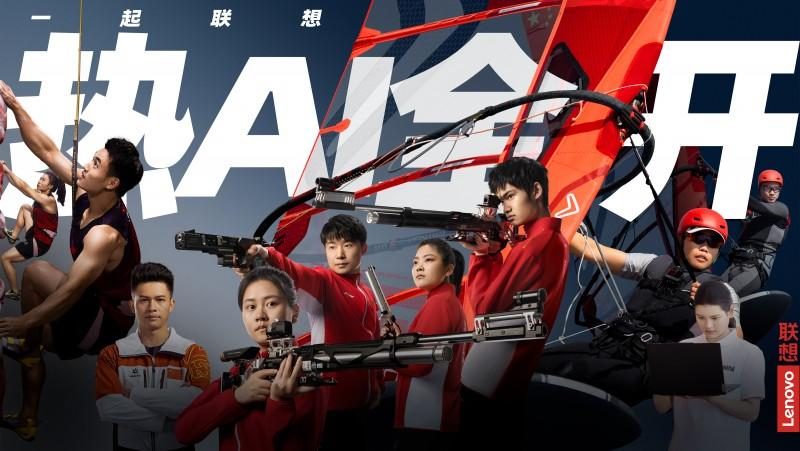
Looking back, Lenovo's ability to create AI PCs that both empower sports with technology and uphold sporting spirit stems from its long-term technological accumulation.
The personal AI assistant 'Lenovo Xiaotian,' which aids coaching teams in rapidly generating training reports during athlete training, is a vital component of Lenovo's Tianxi Personal AI System (Tianxi AS), which also encompasses a personal AI operating platform, serving as the 'AI brain' of Lenovo's intelligent terminals and users' 'personal AI assistant.'
Driven by Tianxi's personal large model, 'Lenovo Xiaotian' possesses natural interaction, intent understanding, task decomposition and planning, self-awareness, short- and long-term memory, and knowledge base and tool invocation capabilities, poised to become the primary entry point for future individual users. With 'Lenovo Xiaotian's' assistance, coaches can input athletes' training data into the personal knowledge base embedded in the AI PC to generate specialized training reports.
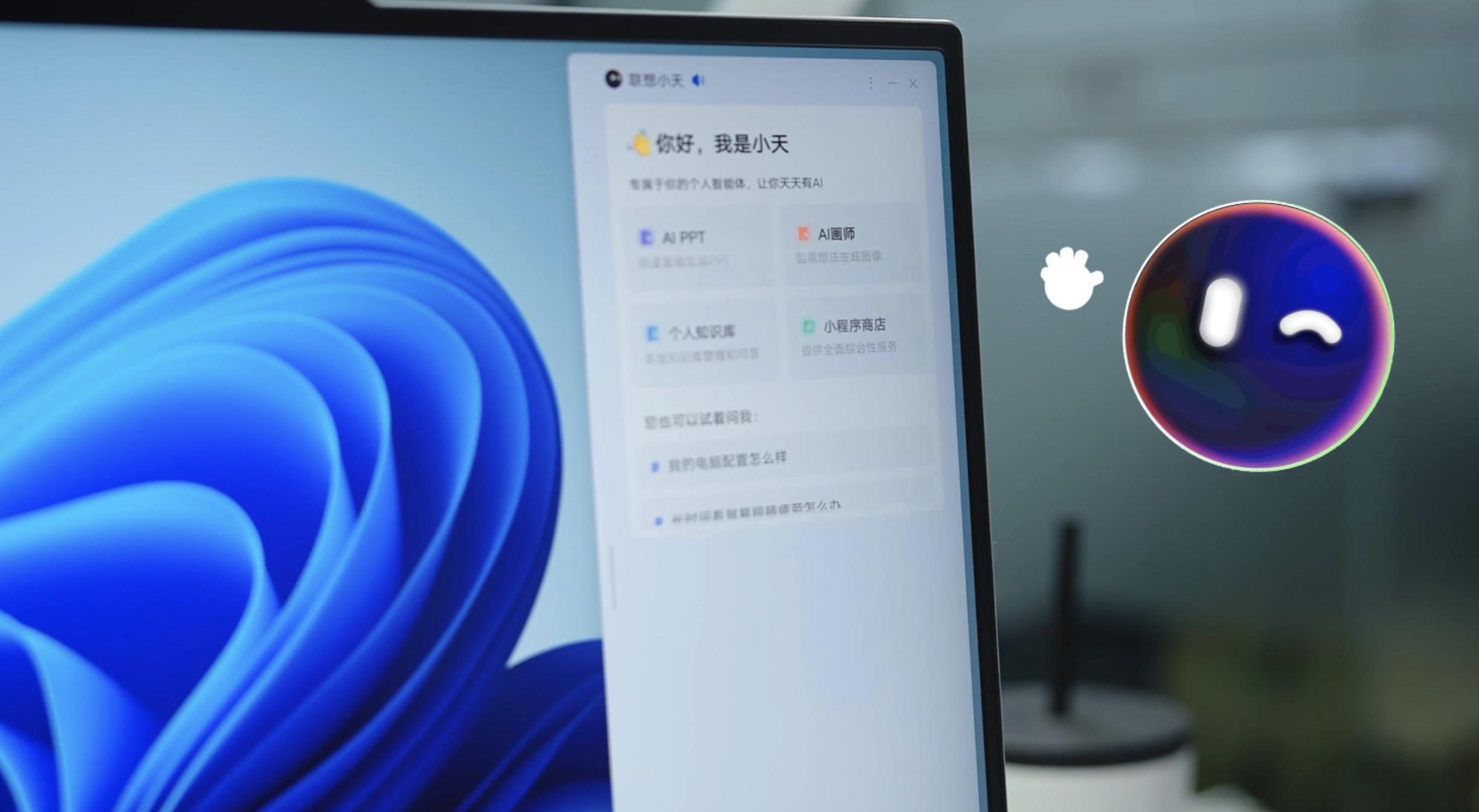
On the hardware front, whether supporting the smart analysis system configured by training teams or smoothly running its own Tianxi AS, robust hardware configuration is equally indispensable.
The previously mentioned Lenovo Zhaoyang X7 AI business laptop employs an Intel® Core™ Ultra processor, including an NPU (Neural Processing Unit) and an Intel Arc™ GPU for graphics processing and AI acceleration, effortlessly supporting personal large model computations and facilitating efficient data analysis and training reviews. Correspondingly, Lenovo YOGA Air 14s Snapdragon AI Yuanqi is equipped with a Qualcomm Snapdragon X Elite processor, boasting 45 trillion operations per second of NPU computing power, achieving a comprehensive upgrade in battery life, computing power, and efficiency.
It is worth mentioning that technology itself often entails additional risks. For instance, data analysis necessitates data collection, organization, and storage, which frequently involves sensitive information related to participating athletes and team cores. In the event of a security breach, it could potentially reveal confidential information to competitors. However, Lenovo Tianxi AS's stringent privacy protection mechanism strengthens data security, addressing this vulnerability and providing athletes and coaching teams with greater peace of mind.
Backed by various technological advancements, an AI PC embodying five key characteristics—a personal AI assistant embedded with a personal large model and natural interaction, a personal knowledge base, local heterogeneous AI computing power (CPU/GPU/NPU), an open AI application ecosystem, and guaranteed personal privacy and data security—was fully showcased during the Olympic Games' preparation process.
40 Years of Refinement: AI PCs Demonstrate Social Value Beyond Commercial Potential
Furthermore, beyond 'Faster, Higher, Stronger,' Lenovo AI PCs' technological empowerment of the Olympics also embodies the sporting spirit of 'Fairness, Justice, Equality, and Freedom' to some extent.
For a time, there was discussion in the industry about the balance between technology and sports, specifically, what technologies align with the future development of sports as they are increasingly applied in athletic competitions.
As technology and competitions integrate more closely, an answer has emerged: only when technological innovations enable every athlete to genuinely experience the changes and value brought about by technology, with a relatively low threshold for free choice, can such technology align with the long-term healthy development of sports.
Behind this lies the social value that technological innovation must bear, in addition to its commercial potential.
This is precisely what Lenovo AI PCs are doing and capable of achieving.
After 40 years of evolution, 40-year-old Lenovo, through more dynamic AI technology and product innovation, is leveraging AI PCs as a vehicle to enable more people worldwide to enjoy the convenience of cutting-edge technology in a more accessible manner.
Forty years have passed, and Lenovo has made PCs an indispensable part of people's work and life, particularly with the emergence of AI PCs, transforming PCs from productivity tools into everyone's 'companion' and successfully applied in sports training scenarios.
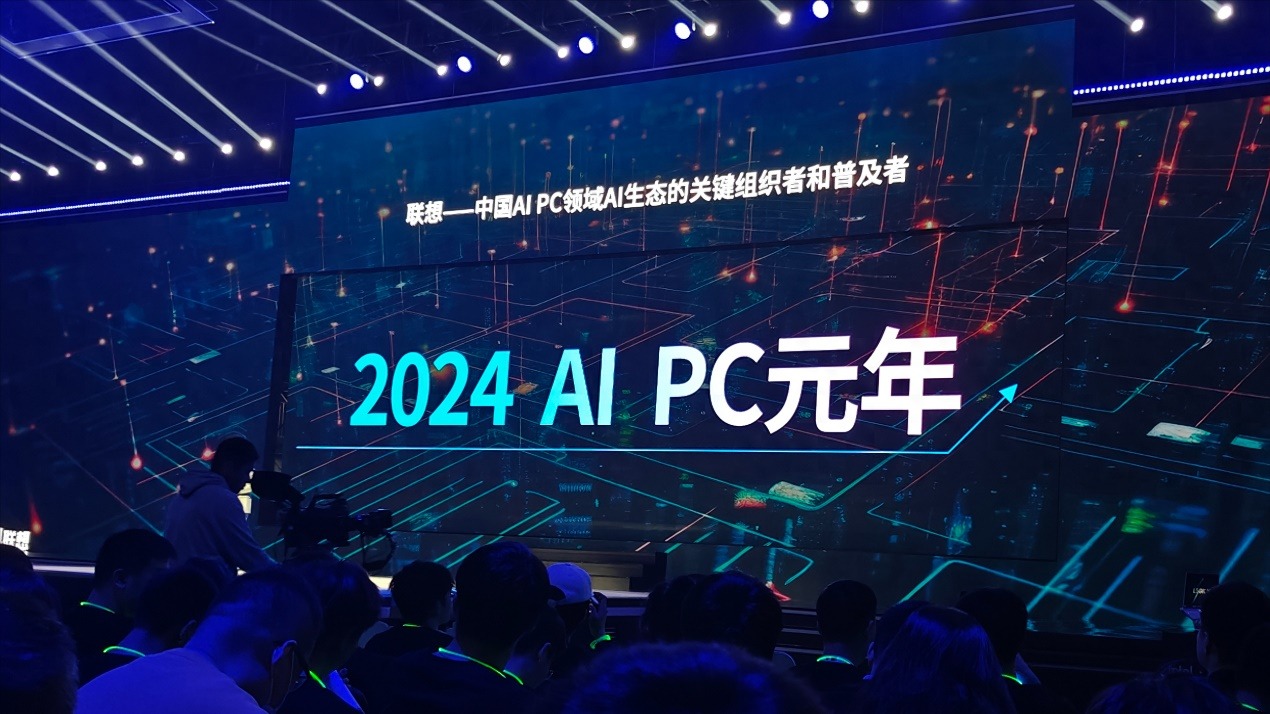
This application is not expensive or unattainable but possesses broad potential for popularization.
According to IDC's latest PC market report for Q2 2024, Lenovo outperformed the market, maintaining its global market share lead.
Globally, Lenovo AI PCs are accelerating market and scenario penetration, much like past PC products.
In other words, the efficient training assistance provided by Lenovo's continuous rollout of AI PC product portfolios, catering to diverse AI needs across various scenarios for enterprises, consumers, and other segments, can benefit more training teams.
Lenovo AI PCs are playing a role in numerous scenarios, with technology intervention and sporting spirit moving in parallel in sports. After 40 years of cultivation, Lenovo's actions increasingly embody social value beyond commercial potential, which might be the aspiration of technological enterprises and brand development alike.
*All images in this article are sourced from the internet







